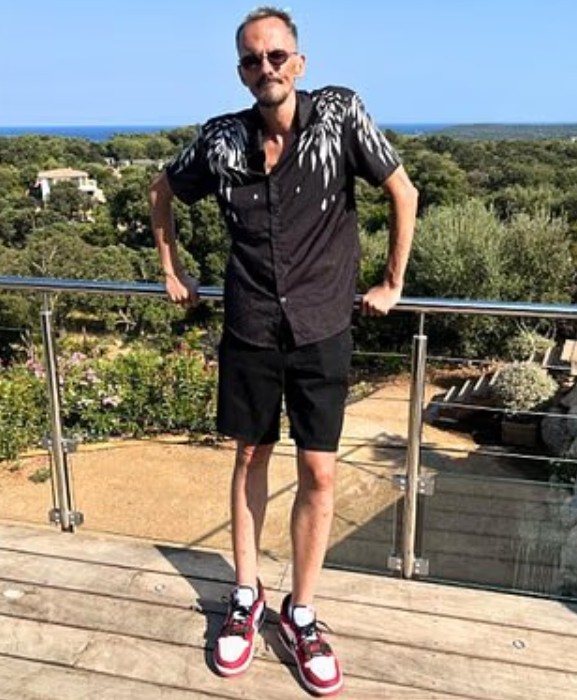The sudden death of French streamer Raphaël Graven, better known by his online alias Jeanpormanove, has shocked the digital world and reignited debates about the darker side of live streaming culture. Graven, a 46-year-old content creator, was found dead in a residence in Contes, a small village north of Nice, during a live broadcast. His passing, reported by local media and confirmed by French prosecutors, has drawn widespread attention not only because of the circumstances of his death but also because of the culture of humiliation, violence, and extreme challenges he endured for months on stream.

This tragic event, already referred to in headlines as “French streamer dies on stream”, has left both fans and critics grappling with unsettling questions: How did it come to this? What role did streaming platforms play in his decline? And what changes are necessary to prevent such tragedies from recurring?
The Life and Video
To his fans, Raphaël Graven was not just another internet entertainer. Under the name Jeanpormanove, he cultivated a persona built around endurance, extreme challenges, and controversial live content. Unlike many streamers who rely on gaming, casual conversation, or creative performances to connect with their audiences, Graven pushed the boundaries of human tolerance. He subjected himself to long periods of sleep deprivation, bouts of violence, and humiliating dares, often at the urging of viewers.
Uncensored video of (Jean Pormanove) Raphaël Graven live streaming his death
french-streamer-dies-on-stream-video.mp4
This high-risk approach earned him both admiration and criticism. Admirers praised his dedication and stamina, while critics accused him of normalizing abuse for entertainment. Regardless of opinion, his impact was undeniable. With over one million followers across social media platforms, Graven had built a devoted community, especially on Kick, a streaming service similar to Twitch. His marathon live streams attracted thousands of viewers who were drawn to the spectacle of extreme endurance.
But the very persona that brought him fame also exposed him to risks that ultimately proved fatal.
The Circumstances of His Death
Reports indicate that Graven died in his sleep during a broadcast, following days of abuse and sleep deprivation. According to local media, the Jeanpormanove video of his final hours captured him struggling physically, eventually falling unconscious. Viewers watched in shock as the stream continued long after he stopped responding.

The prosecutor’s office confirmed that an investigation into the cause of death is underway and that an autopsy has been ordered. While official results are pending, many believe that the strain of his streaming practices including prolonged wakefulness and physical humiliation played a significant role.
For fans who witnessed the moment, the experience was deeply disturbing. Some clips of the Jeanpormanove death video have circulated online, though fellow streamers and friends have pleaded with the public not to share such footage.
Government Response: “An Absolute Horror”
The death has caught the attention of French authorities, sparking a national conversation about online safety and platform accountability. Clara Chappaz, France’s minister delegate for artificial intelligence and digital technologies, called the incident an “absolute horror,” emphasizing that Graven had been “humiliated” for months on end. She referred the matter to Arcom, the French media regulator, as well as Pharos, a national reporting system for harmful online content.
Her words underscored the government’s view that this was not just a personal tragedy but a systemic failure involving digital platforms and online communities. The incident has raised alarms about the culture of online humiliation and the normalization of dangerous behavior for entertainment.
Sarah El Haïry, France’s High Commissioner for Children, also weighed in, calling the death “horrifying.” She stressed that platforms must take greater responsibility to regulate violent and harmful content, particularly to ensure that children are not exposed to such disturbing material. In a post on X (formerly Twitter), she urged parents to remain vigilant about what their children watch online.
Kick’s Response: Promises of Review and Condolences
As the platform where Graven built his largest following, Kick has found itself under heavy scrutiny. A spokesperson for the company expressed condolences, saying:
“We are deeply saddened by the loss of Jeanpormanove and extend our condolences to his family, friends and community.”
Kick also emphasized that it is “urgently reviewing” the circumstances of Graven’s death. The company noted that its community guidelines are designed to protect creators and insisted it is committed to upholding those standards. However, critics argue that guidelines alone are not enough if enforcement is inconsistent or reactive rather than proactive.
The case has fueled broader debates about the responsibility of streaming platforms. Should platforms intervene when creators engage in harmful activities, even if viewers encourage them? How can they strike a balance between freedom of expression and protecting individuals from exploitation?
Tributes from Friends and Fellow Streamers
Graven’s death has left a hole in the streaming community. Naruto, a fellow creator and close collaborator, shared an emotional tribute on Instagram. He described Graven as his “brother, sidekick, partner” and pleaded with fans to respect his memory by not circulating disturbing clips of his final moments.
Similarly, French streamer Owen Cenazandotti, who appeared alongside Graven during his last streaming marathon, made a heartfelt request. He urged followers not to share videos of Graven’s “last breath,” highlighting the importance of preserving his dignity in death.
These appeals reflect the community’s desire to honor Graven not for the tragedy that ended his life, but for the impact he had during it. They also reveal the uncomfortable reality that in the age of social media, even death can become content.
The Broader Implications: When Entertainment Becomes Exploitation
The Jeanpormanove video tragedy illustrates a disturbing trend: the push for increasingly extreme and shocking content in online streaming. As platforms reward engagement, creators often feel pressure to outdo themselves to attract views, donations, and attention. This escalation can blur the line between entertainment and self-destruction.
Viewers also play a role. The culture of cheering on harmful stunts, humiliations, or endurance tests creates a feedback loop in which creators feel compelled to risk their well-being for applause. In Graven’s case, this toxic cycle may have contributed directly to his death.
This raises fundamental ethical questions:
To what extent should creators be allowed to endanger themselves for entertainment?
Should platforms intervene more aggressively to stop harmful broadcasts?
Do audiences share responsibility when they encourage or consume exploitative content?
Legal and Cultural Consequences
The investigation into Graven’s death could have far-reaching consequences in France and beyond. If authorities conclude that platforms failed to prevent exploitation, regulatory measures may follow. This could include stricter oversight of live-streaming content, clearer standards for protecting creators, and harsher penalties for platforms that ignore warning signs.
Culturally, the case may also mark a turning point. It forces society to confront the darker aspects of internet fame: the pressure to constantly entertain, the exploitation of suffering, and the fragile boundaries between reality and performance.
Just as earlier tragedies reshaped conversations about reality television and online challenges, the Jeanpormanove death may influence how streaming is regulated and consumed in the years to come.
The death of Raphaël Graven, known worldwide as Jeanpormanove, is more than just a shocking news story. It is a cautionary tale about the dangers of extreme content, the responsibilities of platforms, and the costs of a culture that sometimes prioritizes entertainment over human dignity.
While fans will remember him for his passion, energy, and community, his story will also serve as a grim reminder of the risks that come with pushing boundaries in the pursuit of digital fame. As headlines continue to circulate “French streamer dies on stream,” “Raphaël Graven video,” “Jeanpormanove video” the hope is that lessons will be learned, and change will follow.
Ultimately, the legacy of Jeanpormanove should not be reduced to clips of his final moments but understood as a turning point in the conversation about online safety. His death underscores the urgent need for safer digital spaces where creators are not driven to self-destruction and where communities value humanity above spectacle.
Hot News –
